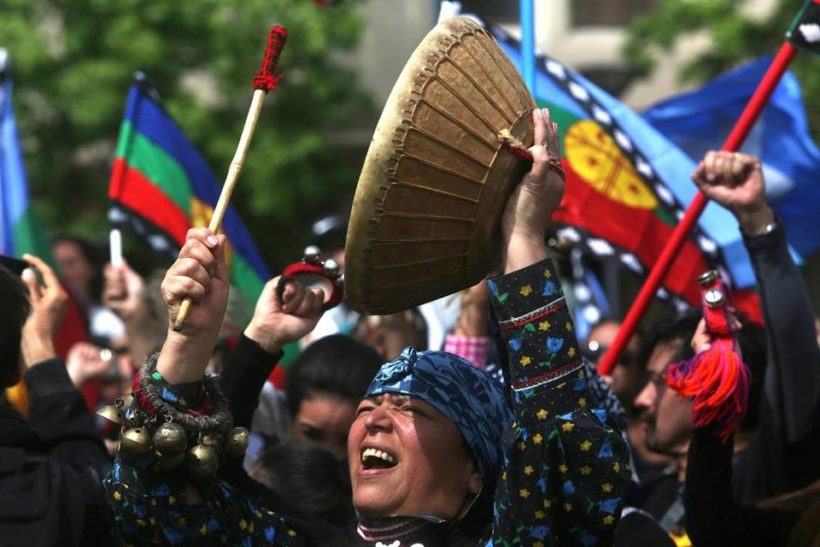Violence against indigenous peoples has only made them stronger.
Throughout our America, but also in the rest of the world, the harassment and criminal violence against indigenous communities that do not give in to the invasion of their territories has caused millions of innocent victims. This constant warfare, a legacy of the colonising invasions whose flag of race and lineage reigns unabashedly, has left its mark, over the generations, on them, the imprint of poverty, inequality and injustice. In the twenty-first century, we can observe the annihilation of entire villages and even macabre state plans to take over their lands.
In the Amazon, in the Araucania region, or in the steppes of northern Canada, the inhabitants carry in their history the fate of persecution and the loss of their diverse cultural expressions. But also, the burden of an existence deprived of ancestral rights over the territories that have belonged to them. In synthesis, colonialism, of whose arrogance and disregard for life the history treaties are saturated, remains intact; strengthened by a predatory system capable of putting the advantages of a handful of industrial, agricultural or commercial entities before the lives of millions of human beings.
The constant and ruthless manipulation of the public image of the native peoples, injected into the collective imagination of the middle classes thanks to the meticulous work of the media allied with power, contributes in a resounding way to the loss of identity, to the creation of stereotypes – capable of creating an indestructible division between social sectors – and to the division of a citizenry that ends up being instrumentalised for this purpose. However, the rebellious seed that anchors them to their territory still persists in them.
This millennium, with its migratory crises, its armed conflicts for geopolitical domination and the insatiable voracity of multinationals, will be the litmus test for countless indigenous communities that still manage to survive despite aggressions and attempts to exterminate them. Strategies vary and range from violent attack – as in the Mapuche region or the Brazilian Amazon – to plans for forced “integration” which, in essence, means the destruction of the social and cultural fabric of communities rich in their own expressions.
We are entering the toughest stage of the war for water and food. The scenario includes the devastating effects of climate change on the one hand, and the international community’s dehumanising view of resource-deprived populations on the other. Indigenous peoples, who once had sovereignty over their territories but were colonised and plundered by empires that today boast of their wealth, have no right to decide on their future, let alone their present. The “forcibly displaced”, those people forced to leave their homes and lands, already number one hundred million; one hundred million human beings lost in social nothingness.
One hundred million among whom ethnic groups predominate that do not fit in with the capitalist system and neither with the precepts of the theoretical frameworks of urban societies, so addicted to the exercise of discrimination and its various forms of giving everyone their place in this world of infinite strata.
One hundred million human beings walking around the world with no direction and no future.






